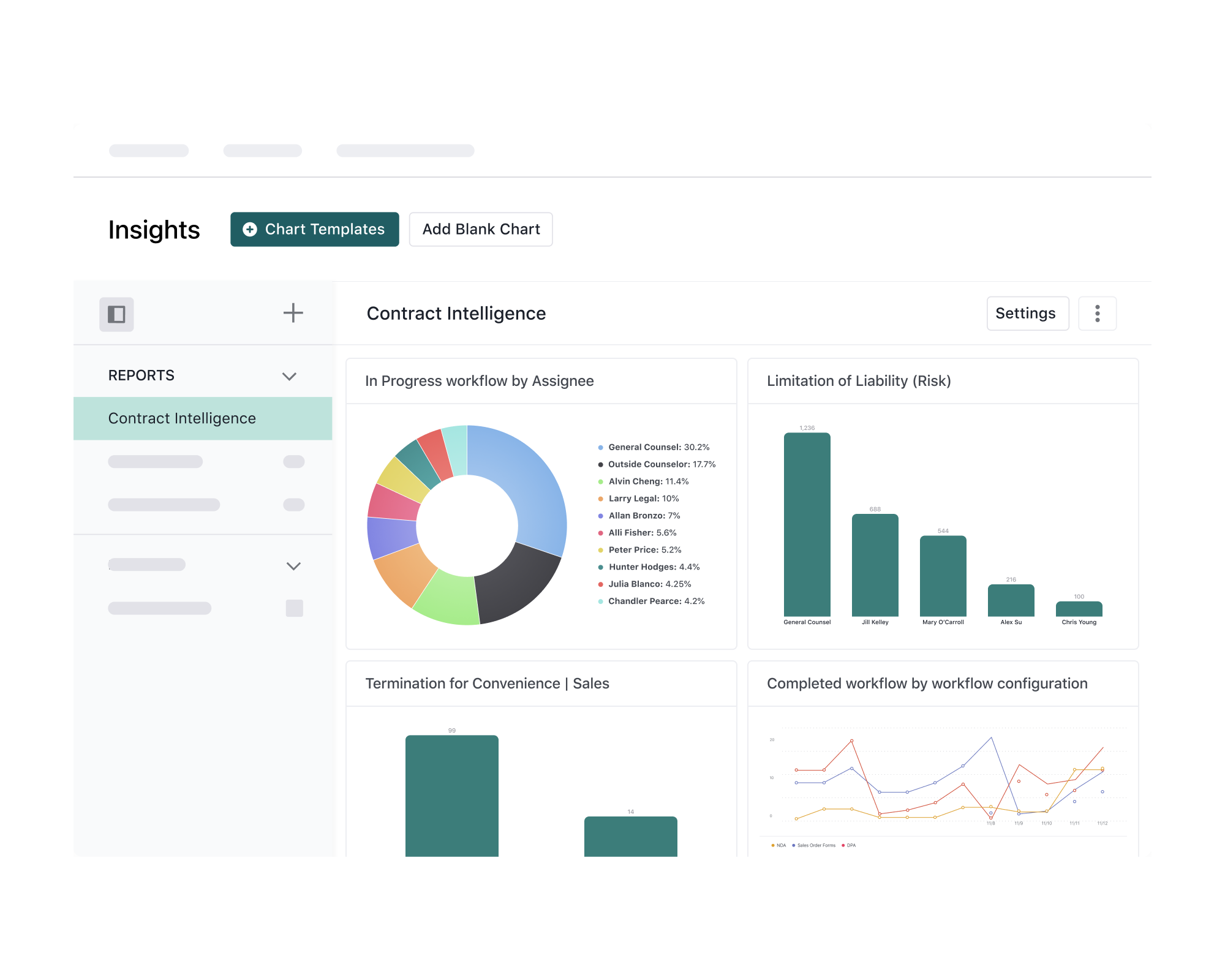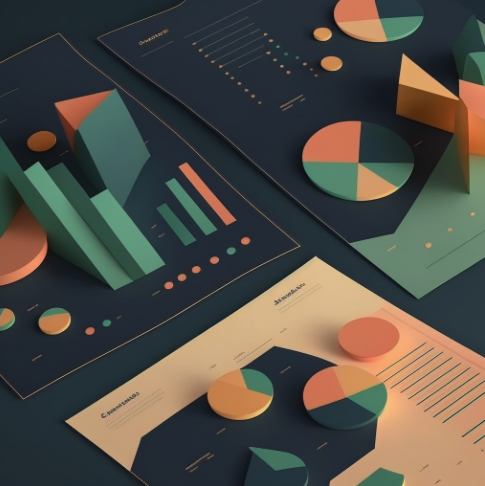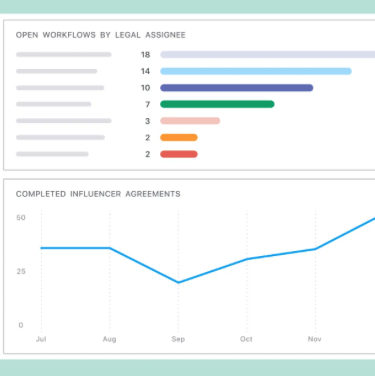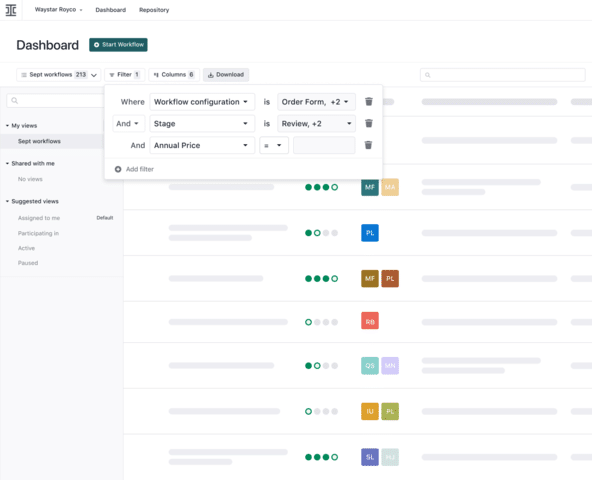
Ironclad Dashboard
Your contract tracking control center

Ironclad’s contract management dashboard lets you hone in on the highest priority contracts and clear contract bottlenecks. It shows you:
- Customizable dashboard views to see the workflow details you care most about
- Always up-to-date statuses on contract properties like stage, turn, assignee, and more
"We have to know what we're doing, we have to know what we said, we have to know where we can find it. We have to know how that negotiation evolved into a final contract, Ironclad does all of that for us."

Tom Sarakatsannis
General Counsel
L'Oréal
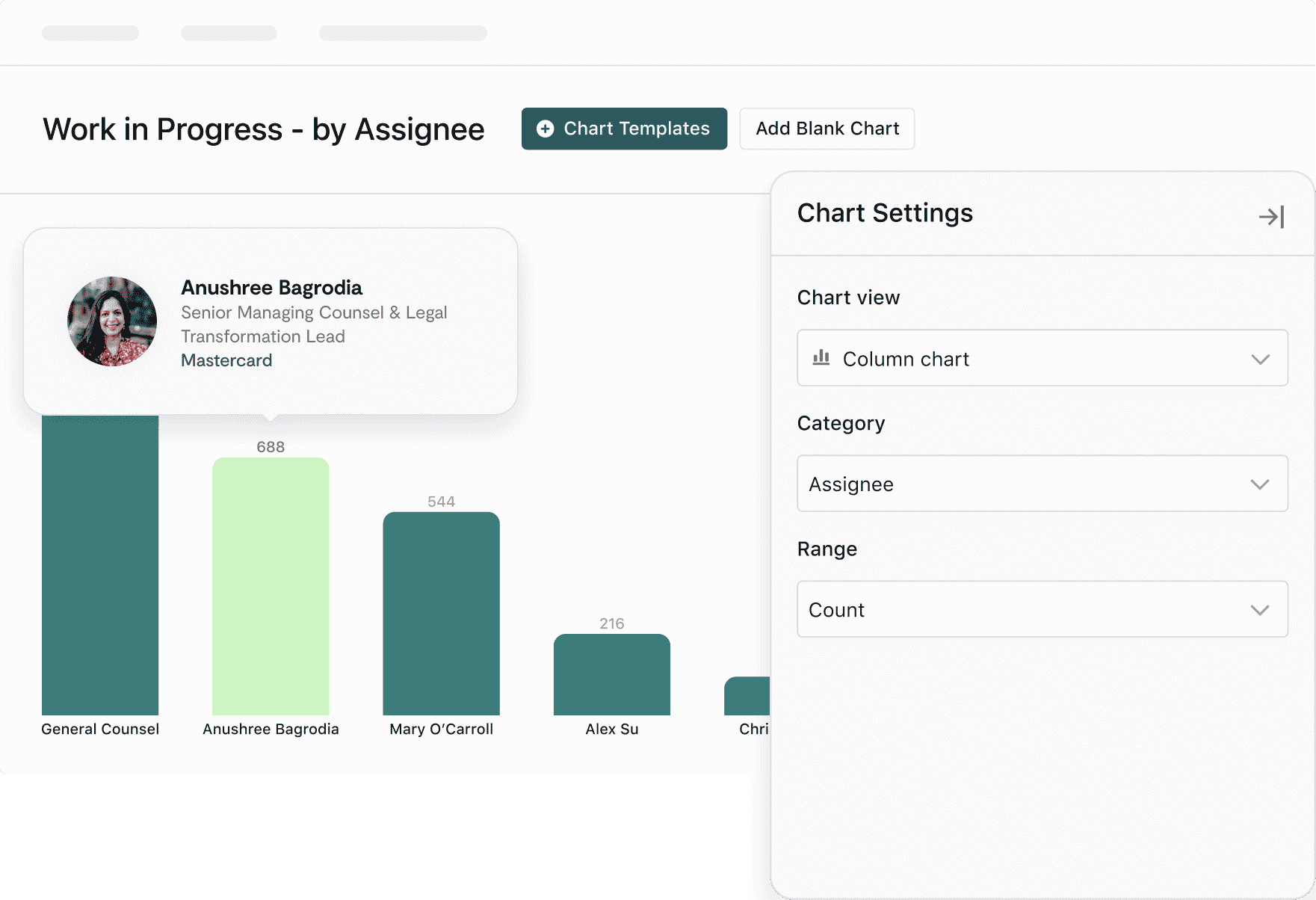
Ironclad Insights
Extract learnings from visualized contract data

What types of contracts are open at each stage? Where in the life cycle is your contract getting stuck? Who’s working on what?
Ironclad Insights provides the contract analytics you need to answer these questions without having to rely on data analysts. It:
- Provides both prebuilt and customizable charts for easy contract data reporting
- Enables chart exporting and sharing as images, PDFs, or CSVs
- Allows granular filtering for precise contract metadata drill-downs
"If my general counsel had asked me to pull data, it would have been an extremely painful manual exercise. We have contract metrics now and can actually see things like how often our paper is being used versus counterparty paper. That’s a huge win."

Adrie Christiansen
Legal Ops Lead
Quora
Ironclad Turn Tracking
Track contracts at every turn
Move contracts to close faster by knowing who needs to review the contract next. With Ironclad’s Turn Tracking, users can:
- Signal and filter which party – internal or counterparty – is reviewing the draft
- Access turn info and use it in the Dashboard, Repository, and workflows
- Configure automations around when turns start during contract reviews
"Ironclad makes cross-functional working easier, because everyone has transparency through the platform about where the contract process is at any given time."

Ken Hoang
Senior Contracts Manager
Intercom

Daniel Michalek
Legal Operations Manager
Branch
Ironclad Insights gives us the data we need to make informed, impactful decisions based on contract data that was previously impossible to define.
Read the customer storyWant to learn more?
See how Ironclad Insights can help you uncover trends in your agreements, optimize contract operations, and help internal teams collaborate more effectively.
Contract Data Management FAQ
Contract data reporting is the process of collecting, analyzing, and presenting data related to contracts within an organization to gain insights into contract performance, risks, opportunities, and compliance.
Contract data reporting is important because it allows organizations to track and monitor the status and effectiveness of contracts, identify trends, make informed decisions, and optimize contract management strategies. It helps organizations understand their contractual relationships, assess supplier performance, negotiate better terms, and align contracts with business objectives.
Contract data reporting typically includes information such as contract terms, key dates, performance metrics, financial data, compliance requirements, and other relevant details specific to each contract.
Contract data can be collected through various means, including manual data entry, extraction from contract management systems or databases, integration with other business systems, and automation through artificial intelligence or machine learning technologies.
The benefits of contract data reporting include improved visibility into contract performance, better risk management, enhanced compliance, optimized supplier relationships, cost savings through better negotiation and resource allocation, and data-driven decision-making for contract-related strategies.
Contract data reporting improves contract management by providing insights into contract performance, enabling proactive identification of risks and issues, facilitating contract compliance monitoring, supporting strategic decision-making, and optimizing contract negotiation and renewal processes.
There are various contract management software solutions available that offer contract data reporting capabilities. These tools often provide features for data extraction, visualization, analytics, and reporting, helping organizations streamline the contract data reporting process.
The frequency of contract data reporting may vary depending on the organization’s needs and contract volume. It can be performed on a regular basis, such as monthly or quarterly, or as needed for specific analysis or reporting requirements.
Key stakeholders involved in contract data reporting may include contract managers, procurement teams, legal departments, finance and accounting personnel, executive management, and other relevant personnel responsible for contract oversight and decision-making.
